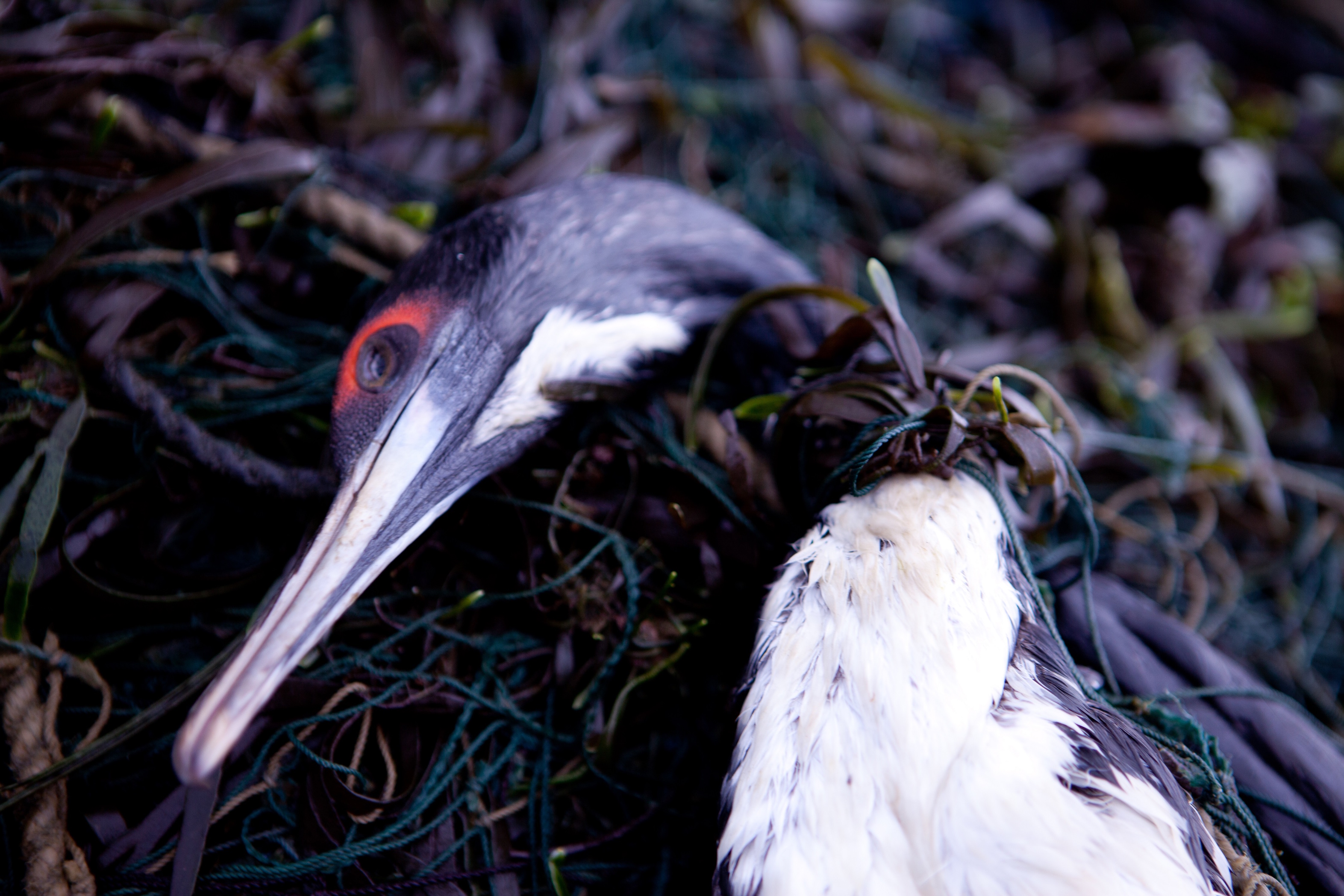
LED lights could save seabirds from getting stuck in fishing nets
An international team of researchers led by the University of Exeter has found that illuminating fishing nets with inexpensive LED lights could cut injuries and deaths to seabirds and marine animals by more than 85 percent.
The experts demonstrated that green, battery-powered LED lights can drastically reduce the amount of birds getting caught in gillnets, which are placed in fixed positions and designed to capture fish by the gills. The investigation was focused on 114 pairs of gillnets in fishing waters off the coast of Peru.
The study revealed that, compared to the nets that were not illuminated, the nets with LED lights caught 85 percent fewer guanay cormorants – a native diving bird that commonly becomes entangled in nets.
A previous study conducted by the same team found that LED lighting also reduced the number of sea turtles caught in fishing nets by 64 percent.
The researchers believe that the lights provide a cheap and reliable method that will dramatically reduce the capture and death of birds and turtles, while essentially having no effect on the amount of fish caught in the nets.
“We are very encouraged by the results from this study,” said lead author Dr. Jeffrey Mangel. “It shows us that we may be able to find cost-effective ways to reduce bycatch of multiple taxa of protected species, and do so while still making it possible for fishers to earn a livelihood.”
Peru’s gillnet fleet is estimated to set at least 100,000 kilometers of net per year, in which thousands of turtles and seabirds will be unintentionally caught as bycatch.
“It is satisfying to see the work coming from our Exeter Marine PhDs leading to such positive impact in the world,” said study co-author Professor Brendan Godley. “We need to find ways for coastal peoples to fish with the least impact on the rest of the biodiversity in their seas.”
The research is published in the journal Royal Society Open Science.
—
By Chrissy Sexton, Earth.com Staff Writer
Image Credit: Andrew F Johnson














